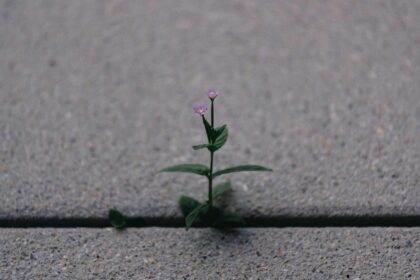Sometimes, the closure we desperately seek doesn’t come wrapped in a heartfelt apology. Maybe the person who hurt us won’t or can’t acknowledge the pain they caused. And that’s a hard truth to face – especially when all we want is validation and understanding. But what if healing doesn’t have to depend on someone else’s words? What if true peace lies in forgiving ourselves and finding strength within? In this article, we’ll explore how to reclaim your power, let go of lingering wounds, and discover a path to closure that starts from your own heart. Because when closure comes from within, it can be the most freeing kind of all.
Understanding the Emotional Impact of Unresolved Hurt
The weight of unresolved hurt can seep into the very core of our being, creating a quiet, persistent ache that often goes unnoticed but profoundly influences our actions and emotions. When pain lingers without acknowledgment, it can generate feelings of confusion, anger, and mistrust-not just toward others, but toward ourselves. This emotional burden can manifest as anxiety, sleeplessness, or a pervasive sense of unease, subtly shaping the lens through which we view future relationships and experiences.
Learning to recognize these impacts is the first step toward reclaiming our inner peace. Instead of waiting for an apology that might never come, embracing the following truths can be transformative:
- Validation of Your Feelings: Your emotions are real and deserving of acknowledgment, no matter the source.
- Self-Compassion: Treat yourself with kindness rather than blame, fostering a space where healing can begin.
- Empowerment Through Acceptance: Accepting what can’t be changed frees energy to focus on personal growth and resilience.
Embracing Self-Compassion as the First Step to Healing
Healing from emotional wounds is often portrayed as a linear journey, but the truth is far more complex and compassionate paths begin with how we treat ourselves. When we stop judging our own pain and recognize our humanity, we unlock the power to transform hurt into growth. Self-compassion is not about excusing harm or forgetting the past; it is about holding our suffering gently, like a trusted friend, acknowledging that we too deserve kindness, patience, and care. This inner acceptance creates a sanctuary where healing can take root without depending on external validation or apologies.
In this process, embracing self-compassion might look like:
- Speaking to yourself with the gentle encouragement you would offer a loved one
- Allowing space for your emotions without pressure to fix or push them away
- Practicing mindful self-awareness that honors your experiences and needs
- Choosing forgiveness-not to condone wrongdoing, but to free your heart from anger’s grip
By nurturing this kind, loving relationship with yourself, you lay a foundation for true healing-one that does not hinge on the presence of an apology, but instead flourishes from the deep well of inner peace and acceptance.
Practical Techniques to Release Resentment and Find Peace
One of the most transformative ways to let go of lingering bitterness is to cultivate self-compassion. Often, when hurt remains unaddressed, it’s because we’ve tied our sense of peace to an external resolution that may never come. Embracing your own humanity through gentle self-talk and allowing yourself to feel the pain without judgment helps dissolve the heavy weight of resentment. This process can include daily affirmations, journaling your feelings in a private space, or even meditative practices that focus on inner kindness and acceptance. The freedom that arises when you stop waiting for outside validation allows you to reclaim your emotional power.
Another practical technique involves redefining your narrative by shifting focus away from what was done to you and toward what you choose to build for yourself. Visualization exercises serve as powerful tools here-imagine a future where the past no longer dictates your emotions, where wounds have turned into catalysts for growth. Incorporate these steps into your routine to reinforce peace:
- Set physical or symbolic boundaries to protect your emotional space.
- Practice deep breathing or grounding exercises when memories stir up anger.
- Create rituals to honor your healing journey, such as lighting a candle or writing a forgiveness letter you don’t have to send.
Building Your Inner Strength to Move Forward Unapologetically
True resilience stems from a deep, unwavering connection with oneself. When external validation or apologies fail to arrive, the power to heal lies in reclaiming control over your own narrative. Embracing this mindset means recognizing that your worth, your perspective, and your peace are not dependent on others’ acknowledgement or remorse. By cultivating self-compassion and setting clear boundaries, you gradually fortify an inner sanctuary resistant to the storms of disappointment and regret.
The journey forward unapologetically calls for nurturing habits that reinforce your strength day by day. Consider incorporating practices such as:
- Journaling your feelings to release pent-up emotions and track growth
- Meditation or mindfulness to anchor yourself in the present and reduce anxious rumination
- Affirmations that remind you of your inherent resilience and value
- Engaging in creative outlets that empower self-expression without judgment
These steps may seem small but collectively act as building blocks, empowering you to move forward with conviction, free from needing permission or apologies. In this space, healing turns inward and becomes a bold, beautiful declaration of your own strength.
In Retrospect
Finding closure without an apology is one of the most personal, and sometimes challenging, journeys we can take. It means learning to release the hold that others’ actions have on our hearts and choosing to reclaim our peace from within. Healing doesn’t always come wrapped in the words we hope to hear-it often comes quietly, from the deep work we do to forgive ourselves and grow beyond the pain. So, if you’re walking this path, remember that your worth isn’t defined by someone else’s acknowledgment. Closure is yours to create. And in that creation lies the freedom to finally breathe, to heal, and to move forward with a heart whole and hopeful.
















